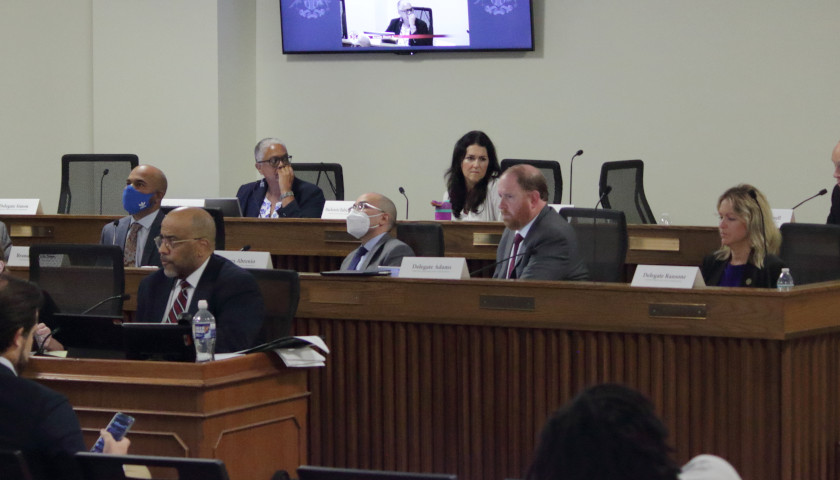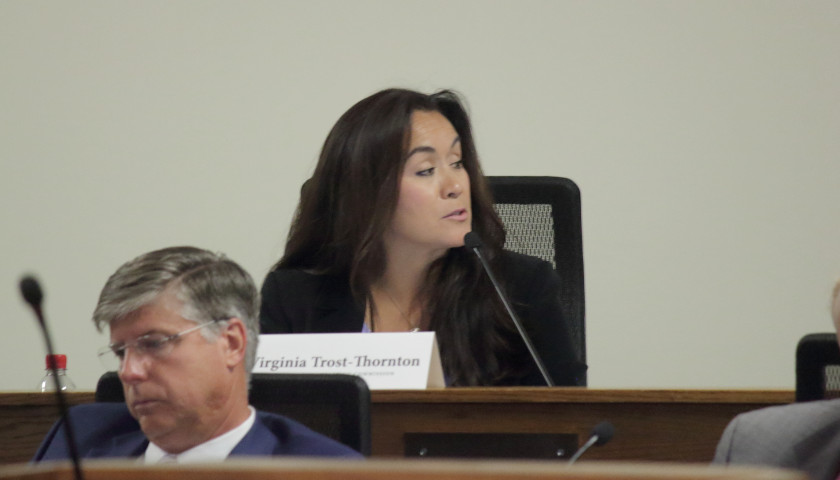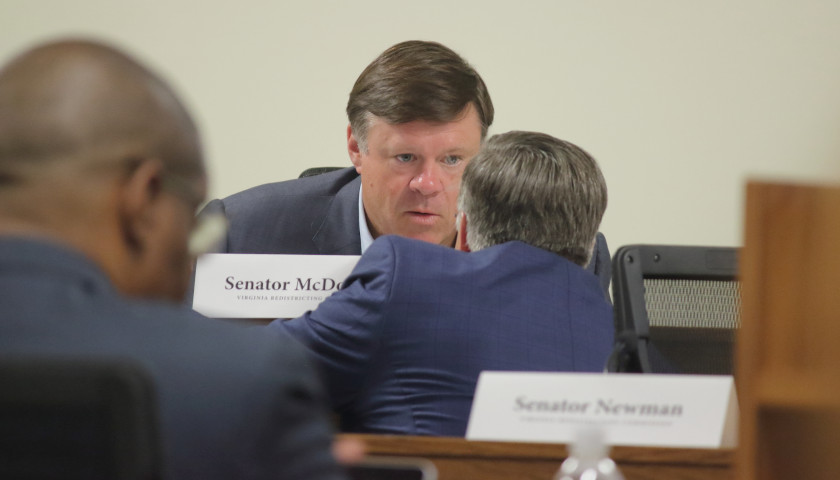RICHMOND, Virginia – The Virginia Redistricting Commission will hire separate Republican and Democratic map-drawing teams after voting against a non-partisan team proposed by the Democratic legal counsel. In the Tuesday meeting, the commission also worked on a guidance document and agreed to allow the use of historical political data and incumbents’ addresses during the map drawing process.
 Democratic citizen members of the commission lamented the loss of a more non-partisan perspective.
Democratic citizen members of the commission lamented the loss of a more non-partisan perspective.
“The spirit of what we were trying to do as a commission as we’ve heard from citizens over and over again, is not quite unfolding the way maybe many citizens had hoped, but we will do the best we can within the constraints of what we’re voting on as a commission,” Co-Chair Greta Harris (D) said.
But Republicans said having two legal teams worked well, and were unwilling to vote for the non-partisan proposal after the Republican counsel explained concerns about expertise and a perception of bias. The Republican counsel also said that it didn’t seem realistic to hope to find sufficiently-experienced map drawers who were politically unbiased.
New Citizen Member Virginia Trost-Thornton (R) said she supported having one non-partisan map drawer, but said she couldn’t support a proposal that only the Democratic counsel recommended.
“I feel that I would not be doing the duty that I am supposed to if I’m not hearing from both sets of council that they’ve agreed on a particular unbiased entity to do map drawing,” she said.
When discussing the guidance document, the commission passed a proposal that makes keeping political boundaries within the same districts a priority. Legislators referred to current Northern Virginia maps and Lynchburg maps as an example of what happens when political boundaries are divided into multiple districts.
“If there’s anything we’ve heard from most people who spoke to us, it’s, ‘Keep my area together,'” Senator Stephen Newman (R-Bedford) said. “Strangely enough, when we were in Longwood College, there was a ton of people from Lynchburg. And they all said just one thing, and that is, ‘Put Lynchburg back together.’ And I know why they want to do it, it gets rid of the Republicans, and that’s fine. But they want their community to be back together.”
 He said political expedience also contributed to the “spaghetti” of Northern Virginia districts. “And this I think goes directly to what we have heard the most comment about which is, ‘Put my community back together,'” Newman said.
He said political expedience also contributed to the “spaghetti” of Northern Virginia districts. “And this I think goes directly to what we have heard the most comment about which is, ‘Put my community back together,'” Newman said.
Republicans and some Democratic legislators argued for allowing the use of historical data and the incumbents’ addresses. Senator George Barker (D-Fairfax) proposed the motion, and Newman seconded it, arguing against a proposal that would have allowed use of the data only after the maps were complete.
“I believe that in 45 days you can’t get there if you draw maps and undo maps, draw maps and undo maps. This gets the data out there. We can consider it as strongly as we want to but this at least gives us access to what is required and that is that we not favor or disfavor any political party,” Newman said.
Citizen Member James Abrenio (D) said, “We also have to consider the aspect of what the public wants, and I think everybody’s going to beg the question, ‘What would have happened had they not had the political data and tried a neutrality approach?'”
The legal teams will take the changes and update the guidance document to reflect the changes.
In a hot microphone moment during a break captured on the live stream, Citizen Member Brandon Hutchins (D) worried about blow-back from some of the decisions.
“There’s so much feedback though. They’re going to bomb us for this,” Hutchins said.
“No actually they won’t, because it’s actually a fairly small segment of the public that is working on this issue,” Barker said. “We’re not going to get bombed on this. There’ll be some complaints here and there, there always are, and if you try to cater to the last comment you heard from somebody, its difficult to consider. It’s really trying to figure out what’s best for Virginia.”
The commission still needs to decide how the two partisan map-drawing teams will work together — will they create competing maps, or will they work together on the same map and bring conflicts to the commission? The commission also ran out of time to discuss if they will start with blank maps, or modify existing maps.
The commission split evenly on a proposal to approve two subcommittees, one to focus on drawing House maps, and one to focus on Senate maps. Senator Newman repeated his concerns that the proposal had legislators from each chamber working on each map, and said without senators working on Senate maps and delegates working on House maps, they would be unable to get support for the maps in the General Assembly. But Democratic citizen members worried that that would give legislators too much control over the process. The original proposal for the subcommittees was just meant to ease scheduling conflicts, and with the vote split, the proposal was defeated.
“So that’s been withdrawn, and I hope everyone likes being in Richmond, because we will spend a lot of time together over the next six weeks,” Harris said.
– – –
Eric Burk is a reporter at The Virginia Star and The Star News Network. Email tips to [email protected].
Photos by Eric Burk.




